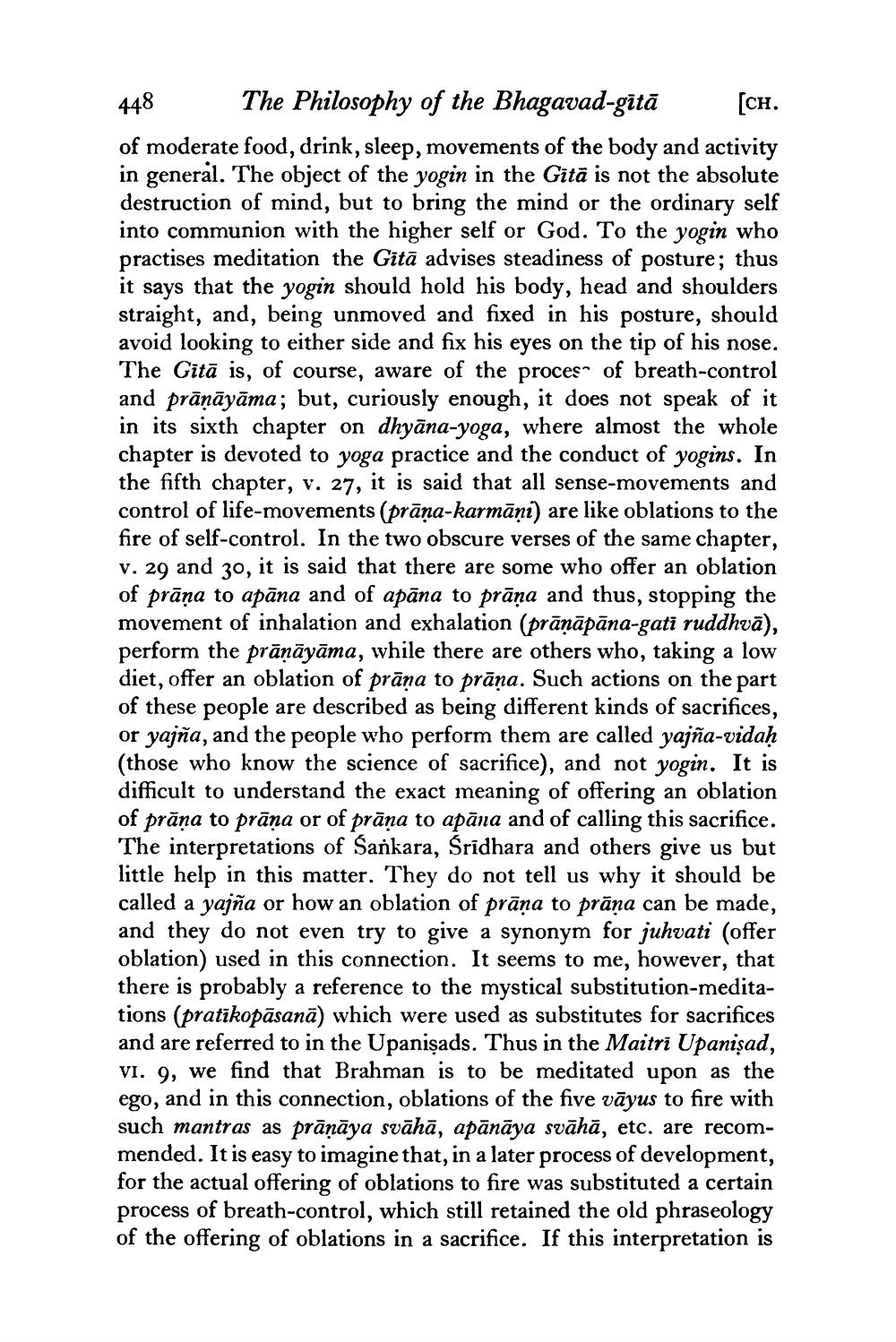________________
448
The Philosophy of the Bhagavad-gitā
[CH.
of moderate food, drink, sleep, movements of the body and activity in general. The object of the yogin in the Gita is not the absolute destruction of mind, but to bring the mind or the ordinary self into communion with the higher self or God. To the yogin who practises meditation the Gitā advises steadiness of posture; thus it says that the yogin should hold his body, head and shoulders straight, and, being unmoved and fixed in his posture, should avoid looking to either side and fix his eyes on the tip of his nose. The Gita is, of course, aware of the proces of breath-control and prāṇāyāma; but, curiously enough, it does not speak of it in its sixth chapter on dhyana-yoga, where almost the whole chapter is devoted to yoga practice and the conduct of yogins. In the fifth chapter, v. 27, it is said that all sense-movements and control of life-movements (prāṇa-karmāņi) are like oblations to the fire of self-control. In the two obscure verses of the same chapter, v. 29 and 30, it is said that there are some who offer an oblation of prāṇa to apāna and of apāna to prāṇa and thus, stopping the movement of inhalation and exhalation (prāṇāpāna-gati ruddhvā), perform the prāṇāyāma, while there are others who, taking a low diet, offer an oblation of prāṇa to prāṇa. Such actions on the part of these people are described as being different kinds of sacrifices, or yajña, and the people who perform them are called yajña-vidaḥ (those who know the science of sacrifice), and not yogin. It is difficult to understand the exact meaning of offering an oblation of prāna to prāṇa or of prāna to apana and of calling this sacrifice. The interpretations of Sankara, Śrīdhara and others give us but little help in this matter. They do not tell us why it should be called a yajña or how an oblation of prāna to prāṇa can be made, and they do not even try to give a synonym for juhvati (offer oblation) used in this connection. It seems to me, however, that there is probably a reference to the mystical substitution-meditations (pratikopāsanā) which were used as substitutes for sacrifices and are referred to in the Upanisads. Thus in the Maitri Upanisad, VI. 9, we find that Brahman is to be meditated upon as the ego, and in this connection, oblations of the five vayus to fire with such mantras as prāṇāya svāhā, apānāya svāhā, etc. are recommended. It is easy to imagine that, in a later process of development, for the actual offering of oblations to fire was substituted a certain process of breath-control, which still retained the old phraseology of the offering of oblations in a sacrifice. If this interpretation is




